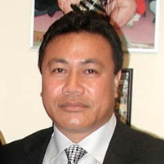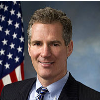Samoa
 Elisaia, Aliioaiga Feturi
Elisaia, Aliioaiga Feturi
- Table of Contents
- News
- Overview
- Basic Information
- History
- Newspapers
- History of U.S. Relations with Samoa
- Current U.S. Relations with Samoa
- Where Does the Money Flow
- Controversies
- Human Rights
- Debate
- Past Ambassadors
- Ambassador to the U.S.
- Embassy Web Site in the U.S.
- Comments
- Leave a comment
U.S. Ambassador to Samoa

The latest U.S. ambassador to New Zealand and Samoa is a former politician who is accustomed to relocating to follow his ambitions. Scott Brown, a former U.S. senator from Massachusetts who moved to New Hampshire in order to restart his political career, was nominated by President Trump on April 20, 2017, and confirmed by the U.S. Senate on June 8, 2017. Many New Zealanders are unhappy with the selection.
Brown’s confirmation was nearly unanimous, with only four votes against him, each of them Democrats—Senators Cory Booker (New Jersey), Kirsten Gillibrand (New York), Brian Schatz (Hawaii) and Kamala Harris (California). He received enthusiastic support from Sen. Elizabeth Warren (D-Massachusetts), who had defeated Brown and taken his Senate seat in the 2012 election.
Born September 12, 1959, at the Portsmouth Naval Shipyard in Kittery, Maine, Scott Philip Brown grew up in Wakefield, Massachusetts, after his parents divorced when he was an infant. Brown had a rocky, unstable childhood. At times his working mother relied on welfare benefits to pay the bills, and sometimes Brown went to live with relatives. In his autobiography, Against All Odds, Brown revealed that he was physically abused by certain stepfathers, and was sexually abused at age ten by a camp counselor who threatened to kill him if he told anyone. Around age 14, he was caught shoplifting but a judge gave him a break, requiring him to write an essay while keeping him out of the juvenile system. Brown later said, “that was the last time I ever stole.”
Brown graduated Wakefield High School in 1977. He earned a B.A. in History at Tufts University in 1981 and a J.D. at Boston College Law School in 1985. After law school, Brown founded a real estate law practice in Wrentham, Massachusetts, which he maintained for 25 years. But he had other sources of income as well.
Brown’s other career was modeling, which started in June 1982, when he won Cosmopolitan magazine’s “America’s Sexiest Man” contest. He was featured in the magazine’s centerfold, posing nude but with his private parts strategically obscured. In an interview, he called himself “a bit of a patriot” who had political ambitions. Paid $1,000 for the Cosmo layout, Brown took a leave of absence from law school to pursue modeling in New York, returning to Boston after almost two years. He continued to model, enjoying a “long, lucrative” part-time catalog and print modeling career during the 1980s.
After ten years of modeling and seven years of law practice, Brown finally acted on his political ambitions. In 1992 he was elected property assessor of Wrentham, and in 1995 he was elected to the Wrentham Board of Selectmen. In 1998, Brown ran for the Massachusetts House of Representatives as a Republican, eventually winning three two-year terms. In March 2004 he won a special election for a state Senate seat, and served three terms there as well.
In January 2010, Brown shocked the political world by winning a special election to fill the remainder of Senator Edward M. Kennedy’s unfinished term, after Kennedy died. The first Republican to win a U.S. Senate seat in Massachusetts since 1972, Brown lasted only two years in the Senate, before losing his reelection bid to Elizabeth Warren in 2012. Nevertheless, his mere presence in the Senate ended a short-lived Democratic super-majority, and ensured that many of President Barack Obama’s proposals would be blocked by Republican filibuster threats.
After his election defeat, Brown joined the board of directors of Kadant, Inc., became a Fox News commentator, and was hired by the Nixon Peabody law firm.
Brown served 35 years in the Army National Guard, joining in 1978 and retiring in 2014 with the rank of colonel. Mostly, he served in the Judge Advocate General’s Corps of the Massachusetts Army National Guard. During his federal election campaigns, Brown was criticized for politicizing his Guard service.
Brown later established residence in New Hampshire, where he and his wife have owned a home for years, and ran for the Senate in 2014. Although he won the Republican nomination handily, Brown lost in the general election to Democratic incumbent Jeanne Shaheen.
In August 2016, in a sexual harassment lawsuit against Fox News, former host Andrea Tantaros accused Brown of making “a number of sexually inappropriate comments to Tantaros” and alleges that on one occasion Brown “snuck up behind Tantaros … and put his hands on her lower waist.” Brown has denied the allegations, but the lawsuit is still active.
Brown is married to reporter Gail Huff, whom he met through modeling. They have two daughters, Ayla and Arianna. In addition to their primary home in Rye, New Hampshire, the couple owns three rental condos in Boston, and a timeshare on the Caribbean island of Aruba.
-Matt Bewig
To Learn More:
Well Played, Future Ambassador Scott Brown (by Yvonne Abraham, Boston Globe)
Why Scott Brown Lost the New Hampshire Senate Race (by Eileen McNamara, WBUR)
A Lost Boy, Seared by Abuse, he Somehow Found his Way (by Sally Jacobs, Boston Globe)
morePrevious U.S. Ambassador to Samoa

President Barack Obama nominated Mark David Gilbert to be ambassador to New Zealand and Samoa on October 30, 2013. Because Gilbert’s nomination was not taken up before the end of the year, Obama had to renominate him on January 6, 2014. Gilbert’s nomination was approved by the Senate Foreign Relations Committee and it now awaits approval by the full Senate. A major campaign bundler, he raised $1.2 million for Obama’s various campaigns.
Gilbert was on Obama’s team long before he was on Obama’s campaign and diplomatic teams. Gilbert played seven games in 1985 for the Chicago White Sox, whose most famous fan is the president.
Gilbert was born in Atlanta on August 22, 1956. While he was growing up, his father and grandfather owned a furniture store in P{ompano Beach, Florida. Gilbert was raised in a baseball family. His father had played in the White Sox organization and his grandfather had been offered a tryout by baseball legend Connie Mack. Gilbert played baseball and basketball for Pine Crest School in Fort Lauderdale and went to Florida State University, where he earned a degree in finance.
He was drafted in the 14th round in 1978 by the Chicago Cubs. He was later sent to the Cincinnati Reds organization and after the 1984 season, Gilbert signed as a free agent with the Chicago White Sox. Sent to triple-A Buffalo, he was called up to the big club in late July to replace a player who’d gone on the disabled list. Gilbert played in seven games in one week, hitting a respectable .273 with three runs batted in. But he injured his knee and was sent back to Buffalo and never played in the majors again.
In 1986, Gilbert started putting his finance degree to use, taking a job as an investment banker with Drexel Burnham Lambert. He moved to Goldman Sachs in 1989 as a vice president in their equities division, concentrating on bringing in wealthy clients. In 1996, Gilbert was lured to Lehman Bros. to perform the same type of work. He moved to Barclays after it acquired the assets of Lehman in the wake of the 2008 financial meltdown.
Gilbert has been a long-time supporter of Democratic candidates. He was on the Democratic finance committee during the campaign of the man who would now become his boss, John Kerry. Gilbert was an early supporter of Obama, joining his national finance committee in 2007, and serving again in 2011-2012. After the 2008 election, Gilbert served as deputy national finance chairman for the Democratic National Committee from 2009 to 2013.
Gilbert and his wife Nancy have two daughters: Dani, who worked for Florida Congresswoman Debbie Wasserman Schultz, and Elizabeth.
-Steve Straehley
To Learn More:
New US Ambassador’s Appointment Delayed (by Kurt Bayer, New Zealand Herald)
Former Baseball Player On Deck To Become US Ambassador (by Ben Walker, Associated Press)
more
 Elisaia, Aliioaiga Feturi
Elisaia, Aliioaiga Feturi
Comments
U.S. Ambassador to Samoa

The latest U.S. ambassador to New Zealand and Samoa is a former politician who is accustomed to relocating to follow his ambitions. Scott Brown, a former U.S. senator from Massachusetts who moved to New Hampshire in order to restart his political career, was nominated by President Trump on April 20, 2017, and confirmed by the U.S. Senate on June 8, 2017. Many New Zealanders are unhappy with the selection.
Brown’s confirmation was nearly unanimous, with only four votes against him, each of them Democrats—Senators Cory Booker (New Jersey), Kirsten Gillibrand (New York), Brian Schatz (Hawaii) and Kamala Harris (California). He received enthusiastic support from Sen. Elizabeth Warren (D-Massachusetts), who had defeated Brown and taken his Senate seat in the 2012 election.
Born September 12, 1959, at the Portsmouth Naval Shipyard in Kittery, Maine, Scott Philip Brown grew up in Wakefield, Massachusetts, after his parents divorced when he was an infant. Brown had a rocky, unstable childhood. At times his working mother relied on welfare benefits to pay the bills, and sometimes Brown went to live with relatives. In his autobiography, Against All Odds, Brown revealed that he was physically abused by certain stepfathers, and was sexually abused at age ten by a camp counselor who threatened to kill him if he told anyone. Around age 14, he was caught shoplifting but a judge gave him a break, requiring him to write an essay while keeping him out of the juvenile system. Brown later said, “that was the last time I ever stole.”
Brown graduated Wakefield High School in 1977. He earned a B.A. in History at Tufts University in 1981 and a J.D. at Boston College Law School in 1985. After law school, Brown founded a real estate law practice in Wrentham, Massachusetts, which he maintained for 25 years. But he had other sources of income as well.
Brown’s other career was modeling, which started in June 1982, when he won Cosmopolitan magazine’s “America’s Sexiest Man” contest. He was featured in the magazine’s centerfold, posing nude but with his private parts strategically obscured. In an interview, he called himself “a bit of a patriot” who had political ambitions. Paid $1,000 for the Cosmo layout, Brown took a leave of absence from law school to pursue modeling in New York, returning to Boston after almost two years. He continued to model, enjoying a “long, lucrative” part-time catalog and print modeling career during the 1980s.
After ten years of modeling and seven years of law practice, Brown finally acted on his political ambitions. In 1992 he was elected property assessor of Wrentham, and in 1995 he was elected to the Wrentham Board of Selectmen. In 1998, Brown ran for the Massachusetts House of Representatives as a Republican, eventually winning three two-year terms. In March 2004 he won a special election for a state Senate seat, and served three terms there as well.
In January 2010, Brown shocked the political world by winning a special election to fill the remainder of Senator Edward M. Kennedy’s unfinished term, after Kennedy died. The first Republican to win a U.S. Senate seat in Massachusetts since 1972, Brown lasted only two years in the Senate, before losing his reelection bid to Elizabeth Warren in 2012. Nevertheless, his mere presence in the Senate ended a short-lived Democratic super-majority, and ensured that many of President Barack Obama’s proposals would be blocked by Republican filibuster threats.
After his election defeat, Brown joined the board of directors of Kadant, Inc., became a Fox News commentator, and was hired by the Nixon Peabody law firm.
Brown served 35 years in the Army National Guard, joining in 1978 and retiring in 2014 with the rank of colonel. Mostly, he served in the Judge Advocate General’s Corps of the Massachusetts Army National Guard. During his federal election campaigns, Brown was criticized for politicizing his Guard service.
Brown later established residence in New Hampshire, where he and his wife have owned a home for years, and ran for the Senate in 2014. Although he won the Republican nomination handily, Brown lost in the general election to Democratic incumbent Jeanne Shaheen.
In August 2016, in a sexual harassment lawsuit against Fox News, former host Andrea Tantaros accused Brown of making “a number of sexually inappropriate comments to Tantaros” and alleges that on one occasion Brown “snuck up behind Tantaros … and put his hands on her lower waist.” Brown has denied the allegations, but the lawsuit is still active.
Brown is married to reporter Gail Huff, whom he met through modeling. They have two daughters, Ayla and Arianna. In addition to their primary home in Rye, New Hampshire, the couple owns three rental condos in Boston, and a timeshare on the Caribbean island of Aruba.
-Matt Bewig
To Learn More:
Well Played, Future Ambassador Scott Brown (by Yvonne Abraham, Boston Globe)
Why Scott Brown Lost the New Hampshire Senate Race (by Eileen McNamara, WBUR)
A Lost Boy, Seared by Abuse, he Somehow Found his Way (by Sally Jacobs, Boston Globe)
morePrevious U.S. Ambassador to Samoa

President Barack Obama nominated Mark David Gilbert to be ambassador to New Zealand and Samoa on October 30, 2013. Because Gilbert’s nomination was not taken up before the end of the year, Obama had to renominate him on January 6, 2014. Gilbert’s nomination was approved by the Senate Foreign Relations Committee and it now awaits approval by the full Senate. A major campaign bundler, he raised $1.2 million for Obama’s various campaigns.
Gilbert was on Obama’s team long before he was on Obama’s campaign and diplomatic teams. Gilbert played seven games in 1985 for the Chicago White Sox, whose most famous fan is the president.
Gilbert was born in Atlanta on August 22, 1956. While he was growing up, his father and grandfather owned a furniture store in P{ompano Beach, Florida. Gilbert was raised in a baseball family. His father had played in the White Sox organization and his grandfather had been offered a tryout by baseball legend Connie Mack. Gilbert played baseball and basketball for Pine Crest School in Fort Lauderdale and went to Florida State University, where he earned a degree in finance.
He was drafted in the 14th round in 1978 by the Chicago Cubs. He was later sent to the Cincinnati Reds organization and after the 1984 season, Gilbert signed as a free agent with the Chicago White Sox. Sent to triple-A Buffalo, he was called up to the big club in late July to replace a player who’d gone on the disabled list. Gilbert played in seven games in one week, hitting a respectable .273 with three runs batted in. But he injured his knee and was sent back to Buffalo and never played in the majors again.
In 1986, Gilbert started putting his finance degree to use, taking a job as an investment banker with Drexel Burnham Lambert. He moved to Goldman Sachs in 1989 as a vice president in their equities division, concentrating on bringing in wealthy clients. In 1996, Gilbert was lured to Lehman Bros. to perform the same type of work. He moved to Barclays after it acquired the assets of Lehman in the wake of the 2008 financial meltdown.
Gilbert has been a long-time supporter of Democratic candidates. He was on the Democratic finance committee during the campaign of the man who would now become his boss, John Kerry. Gilbert was an early supporter of Obama, joining his national finance committee in 2007, and serving again in 2011-2012. After the 2008 election, Gilbert served as deputy national finance chairman for the Democratic National Committee from 2009 to 2013.
Gilbert and his wife Nancy have two daughters: Dani, who worked for Florida Congresswoman Debbie Wasserman Schultz, and Elizabeth.
-Steve Straehley
To Learn More:
New US Ambassador’s Appointment Delayed (by Kurt Bayer, New Zealand Herald)
Former Baseball Player On Deck To Become US Ambassador (by Ben Walker, Associated Press)
more






Comments